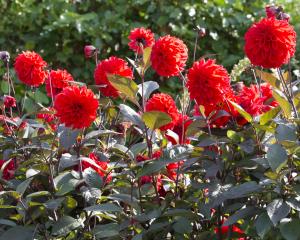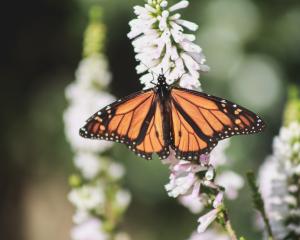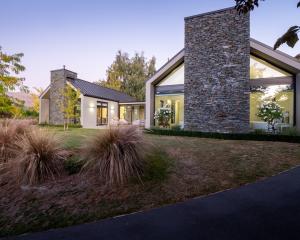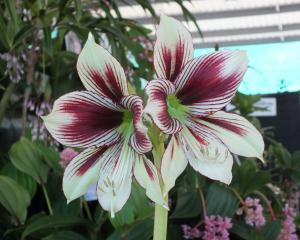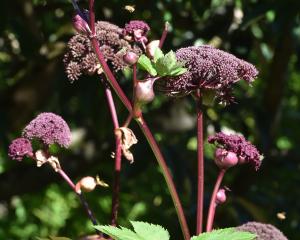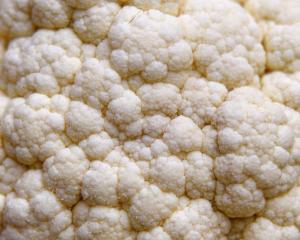For more than 80 years, a West Otago family has made a huge contribution to horticulture, here and overseas, writes Gillian Vine.
Today is Arbor Day, which marks the beginning of the winter tree-planting season.
Stanley Hughes might not have celebrated Arbor Day but he certainly did his share of tree planting. Working for the New Zealand Forest Service, in the winter of 1931 the young Englishman was sent to Beaumont to live under canvas while planting trees.
It was a harsh environment and Stanley decided to leave the Forest Service and start his own nursery.
He bought a rather neglected piece of land at Tapanui, cleared segments with slasher and spade, then began growing vegetables for the forestry camps.
And so, Blue Mountain Nurseries was born.
The vegetables provided an income but, says his son, Denis, ''My father's interests were pretty wide [and] ornamentals had far more appeal''.
Cut flowers and bedding plants satisfied some of that, while growing conifers for his former employer kept up his interest in arboriculture.
Stanley also bred and introduced a number of plants, some of which are still available, including two notable scabious, blue Scabiosa caucasica Blue Mountain and white Mount Cook; pink dog's tooth violets (Erythronium), tulips and high-health English irises.
Two of his pyrethrums, Otago and Southland, were popular but now seem to have disappeared.
''I haven't seen any of them for years,'' Denis says.
Stanley and Elizabeth ran the nursery for more than 30 years, then Denis and his wife Margaret took over.
Now the third generation, their son Chris, runs Blue Mountain Nurseries, having taken over in 2008 when his mother died.
''I'm very lucky indeed,'' Denis says of his eldest son's decision to become involved in the family business.
Of Stanley and wife Elizabeth's three children, John inherited his father's passion for bulbs, while Denis' interests encompassed trees, shrubs and ornamentals.
One of his first efforts as a schoolboy involved sowing a packet of bird seed and wondering what the plant was whose leaves looked like a hand with outstretched fingers.
Back then, cannabis was added to bird seed in the belief that it made canaries sing better - and that's what Denis' plant was, a fine cannabis specimen.
Undeterred, he kept growing and when he left school, studied horticulture at Lincoln.
Of the 300 students, only 10 were girls, among them his future wife, Margaret.
''I think I was a bit lucky to attract her,'' Denis says.
''We found each other in the second year and were inseparable from that time on,'' he adds.
''She was every bit as involved [in the nursery] as I was and the rhododendron City of Dunedin was hers, not mine.''
While Margaret enjoyed the challenge of breeding rhododendrons, ''the azaleas are pretty much all mine'', Denis says.
One of the most successful has been Pavlova, a double white ''that happened really by accident''.
Ghent azaleas were imported from England and when they flowered the first time, the blooms were single, not the expected doubles and it was assumed the wrong plants had been sent.
However, Denis went ahead and crossed them with New Zealand Ilam azaleas.
Of 300 seedlings, half were double-flowered.
Pavlova was the cream of the crop and the nursery still struggles to grow enough to meet the demand.
Ironically, the Ghent plants had double flowers after that first season, making efforts to cross-breed extremely difficult.
Last year, the nursery grew 30,000 rhododendrons and 5000 azaleas, plus many thousands of other trees, shrubs and perennials.
Natives are a favourite of Denis, with his best known introduction probably Pseudowintera colorata Red Leopard.
This horopito was a local selection and, he says: ''If you grow it well, it will be blood red in the sun and serious red in the shade. If you starve it, you'll lose the colour very quickly [to become] a bronzy yellow.''
Other natives from Blue Mountain Nurseries include two southern rata, St Nicholas and Christmas Dream, Astelia Westland, Clematis paniculata Bridal Veil and Clematis cartmanii Sweet Hart.
For those who like agapanthus, Southern Stars was developed for the cut-flower industry, while the most popular lavenders, Lavandula angustifolia Blue Mountain and Blue Mountain White, were his father's breeding.
''They're older than I am,'' Denis says.
Not everything has worked, though: a ''lovely navy'' agapanthus failed to impress the Japanese.
When asked why they were not interested, they said it was the pendulous flowers, which they ''absolutely hate ... because they signify death''.
A successful introduction was Cornus Greenvale, a happy accident.
''The No1 dogwood for our local climate'', the rights were bought from Lorraine Paterson in whose Eastern Southland garden it appeared, a chance seedling from a cross of two species.
''It's a complementary plant to Eddie's White Wonder, which flowers about a month before Greenvale.''
Denis says that as long as the challenge remains, he will not retire.
His latest projects are as varied as ever: crimson-flowered broad beans developed from some he was given and two new francoas, pale pink Rose Bouquet and deep pink Bouquet.
The beans are being sold through Egmont Seeds and the francoas, notable for their longer, stronger flower stems, will be available in November.
Looking back over his years, Denis Hughes expresses concern at fashions in gardening that dominate until the next hot thing takes over.
He refers to the crazes for conifers, cottage gardens, minimalistic gardens and, most recently, ''natives to the exclusion of all else''.
''Embrace what's good in the new but don't chuck out the old things that are good,'' he advises.

